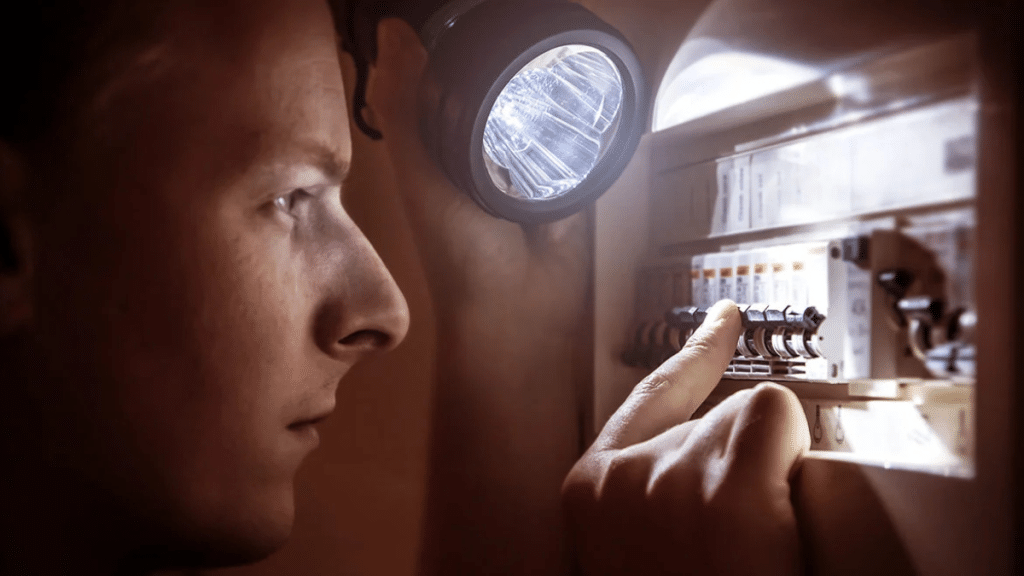Spring can be unpredictable when it arrives. It can be pleasant and sunny one day and then stormy with high winds and a lot of rain the next, Unexpected spring power outages might have you fumbling for flashlights and concerned that the food in the refrigerator will go bad. Use weather data to get real-time updates on shifting weather patterns so you can adjust your plans.. Let’s review some easy strategies for being ready and reducing anxiety when the weather changes.
Why Spring Power Happens
Tornadoes toss trees onto power lines, and floods convert substations into swimming pools. The worst part is that most outages happen for multiple hours. However, during worse times? You might spend days off the grid. During an outage, what is your greatest fear? Food spoilage? Is the phone dead? Or perhaps losing heat in an unusually chilly spell? Let’s address each of these individually.
Asses Your Home
Bring out your inner Sherlock first. Take a stroll around your land. Are there oak branches hanging like they’re going to drop a mixtape over electrical lines? Does a close sneeze cause your basement to flood? Hey, how recently have you inspected your wiring? Circuits in older homes may scream under stress, much like a treadmill gathering dust in your garage. Many utility companies offer free safety assessments, so give them a call. They will identify dangers, such as that tree that is threatening to topple your porch.
Create a “No-Panic” Emergency Kit
You shouldn’t have half-dead batteries and expired bandages in your emergency pack. Consider it your starter bundle for outage survival: LED lanterns are preferable in cases of power outage instead of candles due to the risk of fire. Now, store fast, nutritious food that fills your tummy. Peanut butter, granola bars, canned soup- get anything you can. Lastly, a gallon of water should be stored per person every day. Expert advice: Freeze a couple of drinks so they can cool your refrigerator and help you stay hydrated later.
Do you have insulin or a CPAP machine? Include a cooler and extra batteries. Pets? Keep food on hand for them, along with a chew toy to help them forget about the chaos. Oh, and keep some money on hand. ATMs also cut off when the power goes off.
Strategies for Alternative Power Sources
During a power outage, one thing that must be used carefully is a generator. Since they emit carbon monoxide, avoid messing with them indoors. Additionally, unless you have a professionally built transfer switch, avoid plugging a generator straight into your home’s wiring.
Solar generators can be an excellent choice if you want something safer and quieter. They can help you keep warm and connected during an outage by powering necessary gadgets like your phone, Wi-Fi router, or mini refrigerator.
Your car can also be used as a power source if you don’t have a generator. Small electronics can be safely charged with an inverter. Just be careful not to drive in a confined area and to crack a window.
Make Your House Storm-Proof
Redecoration is a favorite of spring storms. Make sure your patio umbrellas and grills are secure, or else your lawn chair might try out for Twister 2. Surge protectors are similar to electronic bouncers indoors. When the power surge returns, they will be hit.
Do you live somewhere where floods ruin the fun? Use cinder blocks to raise your washer and dryer. If you use a sump pump, ensure you save as many battery and use them only when necessary.
Prevent Your Food from Getting Out of Control
Here’s an interesting fact: If you don’t open your refrigerator, it will remain cold for four hours. The freezer? Should it be packed, 48 hours. (It’s time to give Marie Kondo that stockpile of ice cream.) Let’s face it, though: who remembers not to peek?
Workaround: Freeze Tupperware after filling it with water. As they melt, these homemade ice packs provide you with drinking water and buy you time. Brilliant, huh? Additionally, if the outage continues, pull out your camping stove (which is obviously used outdoors) or search your cabinet for non-cookable food.
Keep Updating Yourself
Your internet connection also goes down when the electricity goes out. A dependable method of keeping up with weather alerts and emergency updates is to use a battery-operated radio. Make sure to register with your utility provider if there is a household member who uses medical equipment. This can guarantee that during outages, your area is given priority.
Conclusion
In summary, outages are terrible, but you have to stay alert during these times. Similar to terrible haircuts, these spring disruptions are inconvenient but transient. You can handle them like a pro if you prepare a little. Make sure to note down everything that was explained and try to incorporate them when the dark times comes.
